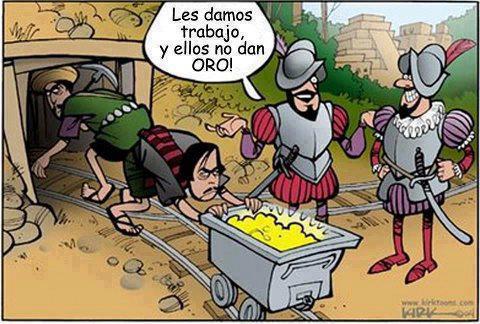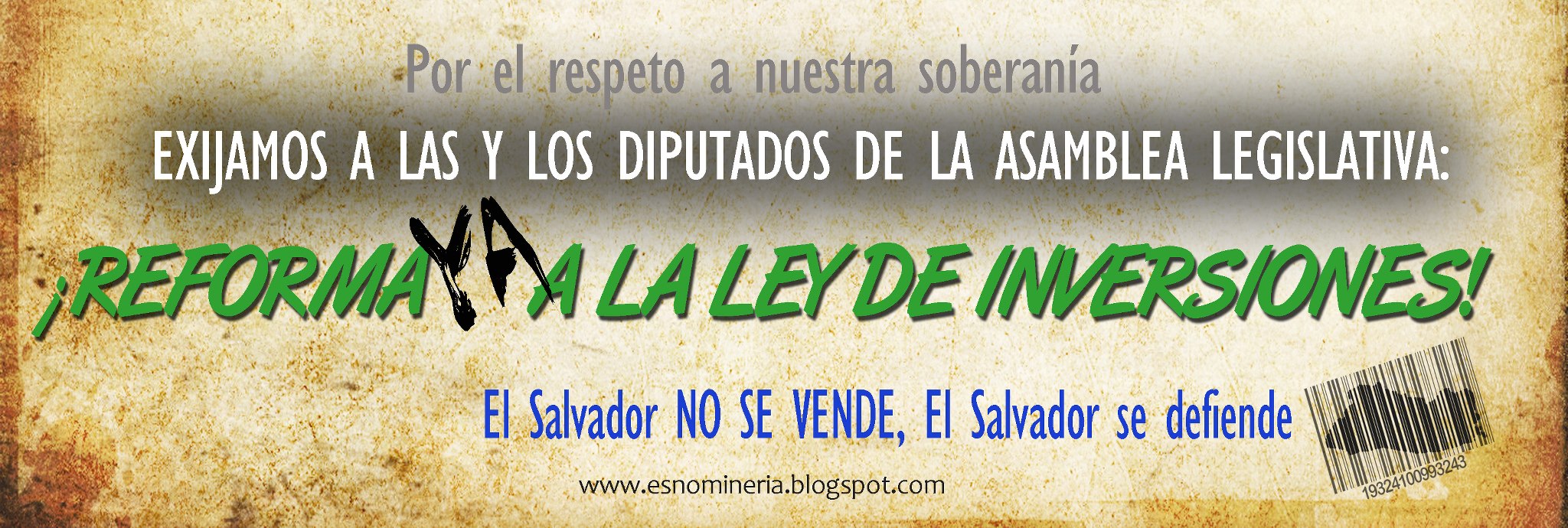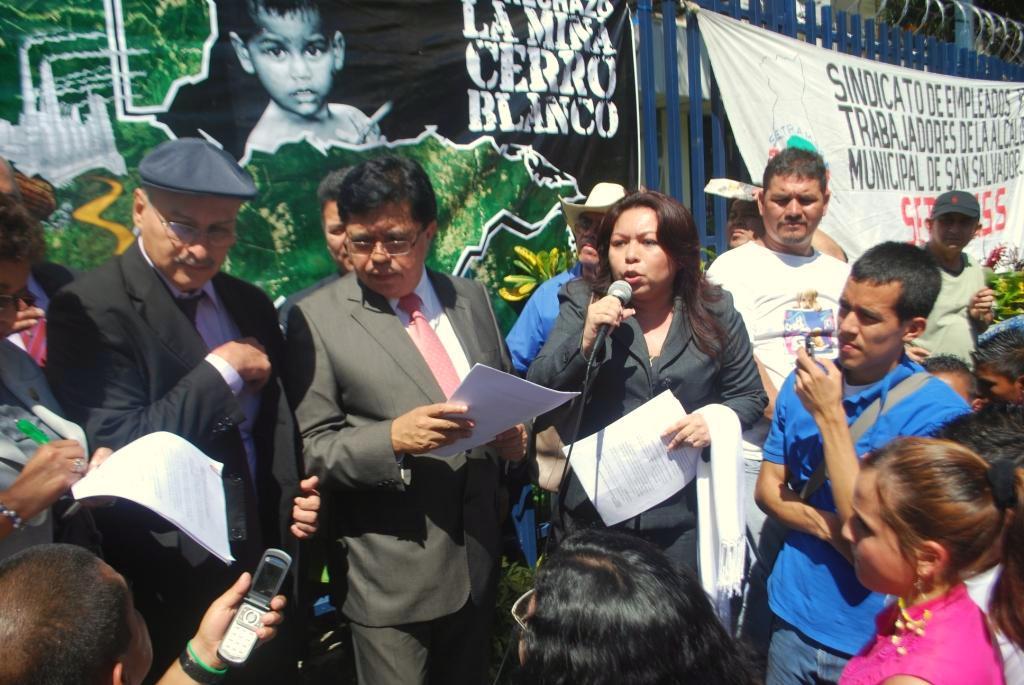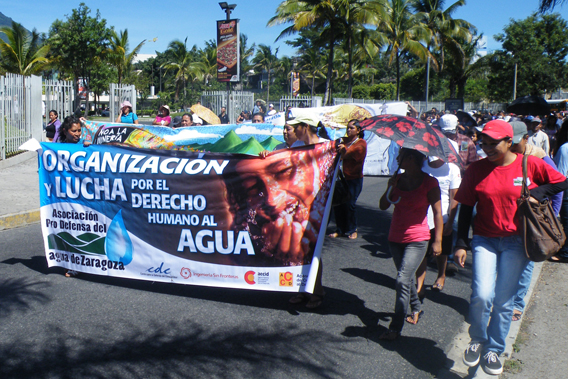- Details
-
Published: Tuesday, 20 August 2013 09:06
By Vladimir Pacheco (krupuk2000@gmail.com)
First published in http://www.mpi.org.au/australia-2/oceanagold-and-el-salvador/
Scars of civil war still fresh in the country’s social landscape. After years of civil war El Salvador remains a fragile country both politically and economically. With a geographical territory a third the size of Tasmania, a population of 6.2 million and scare water resources, the country struggles to provide a decent livelihood for all of its citizens. Since theend of the civil war in 1992, successive governments of this small Central American nation have sought to industrialise the country by opening up the economy and encouraging foreign investment.

“We give them jobs and they give us gold”
Even though mining has not featured strongly in El Salvador’s economic history, mining companies have taken advantage of the country’s relaxed foreign investment rules to start exploration activities. Since the early 2000 as many as 10 transnational mining corporations are prospecting for gold and other precious minerals buried under the northern mountains which provide the main source of clean water, fresh air and local agricultural production for the country.
Read more ...
- Details
-
Published: Friday, 26 October 2012 10:33
On June 1st, the International Centre for the Settlement of Investment Disputes (ICSID) ruled that Canadian mining company Pacific Rim would be allowed to continue its $77 million lawsuit against the Salvadoran government by basing its claims in domestic investment law.
Yesterday, the National Roundtable against Metallic Mining (the Mesa) mobilized over a hundred people to support their urgent demand to reform said law. Theypresented a request to the Legislative Assembly detailing a reform that would ensure that corporations are no longer afforded the option of suing the government in the ICSID, before filing claims in domestic courts.

Below is an editorial aired on the ARPAS Radio Network that calls for support for the Mesa.
A Question of Sovereignty
By, the ARPAS Editorial Team
Yesterday, the National Roundtable against Metallic Mining asked the Legislative Assembly to reform the Investment Law, a piece of legislation that allows transnational corporations to sue the government in international tribunals and bypass the domestic justice system.
Article 15 of this law establishes that when controversies occur between foreign investors and the government, regarding investment in El Salvador, investors can go directly to the International Centre for the Settlement of Investment Disputes (ICSID), a corporate tribunal at the World Bank with its headquarters in Washington.
This legislation has allowed mining companies like Pacific Rim and Commerce Group to sue the government in the ICSID when the government denied their operating permits. Pacific Rim dried up wells and created violence in Cabañas, which lead to their exploitation permits being denied; and Commerce Group’s exploitation license was revoked because it contaminated the San Sebastian River in La Union.
But, unsatisfied with the legitimate and fair decision taken by the Salvadoran government, both transnational corporations went to the ICSID in order to sue the country, basing their cases in the Investment Law and in the Central American Free Trade Agreement (CAFTA), the latter of which was ratified by a right-wing legislative assembly during the Antonio Saca government.
The Investment Law and free trade agreements are a key part of the neoliberal legal structure implemented by ARENA governments that favor national and foreign big businesses at the cost of the public interest in the country. For this reason, the first steps of building a new economic model in which prioritizes national interests, would take this damaging neoliberal legal framework apart.
This why the efforts of the National Roundtable against Mining are so important: we need to reform or overturn the Investment Law and CAFTA in order to replace them with laws and trade agreements that promote investment and trade, but without infringing on the sovereignty and self-determination of the country, the protection of the environment and the rights of the population. Therefore, all the patriots and everyone who feels tied to this country should support the Mesa’s motion and demand that the Legislative Assembly revise and modify all the investment legislation and trade passed during the ARENA governments and that supports the neoliberal model that we need to change.

- Details
-
Published: Wednesday, 24 October 2012 10:51
Presentation:Â We Demand a Law that Bans Metallic Mining in El Salvador
San Salvador, March 5, 2012
At a forum organized by the National Roundtable against Metallic Mining in March, Dr. Angel Ibarra gave a presentation detailing the dangers and implications of metallic mining in El Salvador. This presentation is a great resource and contains information and statistics useful for education around the issue.
Below is a map of the “Gold Belt of El Salvador” which is included in the presentation.
For the full presentation see here….
Â

- Details
-
Published: Wednesday, 24 October 2012 10:11
El Salvador mulls total ban on mining
By: Robin OisĂn Llewellyn, special to mongabay.com
October 22, 2012
On hot days the broken stone and dried up silt from the San Sebastian mine in Eastern El Salvador bake in the sun. The slew of refuse is freckled with rock stained bright blue with cyanide, open to the elements that on rainier days will wash it downhill into the Rio San Sebastian below.

The openings of passages into the mine dot the mountainside, and further downhill a bright orange stream with a chemical stench flows into another. The American Commerce Group ceased operating here in 1999 but sought to return when the price of gold began its current escalation. After a Centre for Investigation of Investment and Commerce study found the local river to be 100,000 times more acidic than the area’s uncontaminated water, and cyanide levels to be ten times above safe levels, Commerce Group's environmental permit was revoked. The company is subsequently suing the Salvadoran government for $100 million through the Central American Free Trade Agreement.Â
Rising concern over the environmental impact of mining led both presidential candidates in the 2009 elections in El Salvador to pledge to suspend mining operations, a promise kept by current president Mauricio Funes. To prevent further legal cases, which are already draining millions from the country’s coffers, the Salvadoran legislature is considering a special law suspending administrative procedures related to the exploration and exploitation of metallic mining concessions.
Salvadoran environmentalists, in turn, are urging their government to go beyond the suspension of mining projects, and instead ban metallic mining altogether. Thousands of demonstrators marched through the capital this month to urge parliament to sign a law that would enshrine a "human right to water," which they said would make it impossible to grant mining permits.
Read the rest of the article here…







